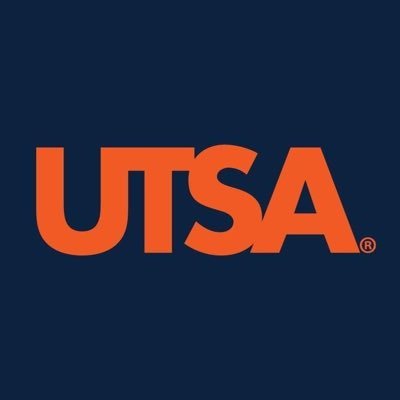When Taylor Eighmy talks to people about the growth of artificial intelligence in society, he doesn’t just see an opportunity — he feels a jolt of responsibility.
The president of The University of Texas at San Antonio said the Hispanic-serving institution on the northwest side of the Alamo City needs to make sure its students are ready for what their future employers expect them to know about this rapidly changing technology.
“It doesn’t matter if you enter the health industry, banking, oil and gas, or national security enterprises like we have here in San Antonio,” Eighmy told The Texas Tribune. “Everybody’s asking for competency around AI.”
It’s one of the reasons the public university, which serves 34,000 students, announced earlier this year that it is creating a new college dedicated to AI, cyber security, computing and data science. The new college, which is still in the planning phase, would be one of the first of its kind in the country. UTSA wants to launch the new college by fall 2025.
According to UTSA, Texas will see a nearly 27% increase in AI and data science jobs over the next decade. The U.S. Bureau of Labor Statistics projects data science jobs nationally will increase by 35% over that time period. Leaders at UTSA say they don’t just want students to be competent in the field, but also prepare them to be a part of the conversation as it grows and evolves.
“We don’t want [students] to spend time early in their careers just trying to figure out AI,” said Jonathon Halbesleben, dean of UTSA’s business school who is co-chairing a task force to establish the new college. “We’d love to have them be career-ready to jump right into the ability to sort of shape AI and how it’s used in their organizations.”
Over the past year, much of the conversation around AI in higher education has centered around generative AI, applications and search engines that can create texts, images or data based on prompts. The arrival of ChatGPT, a free chatbot that provides conversational answers to users’ questions, sent universities and faculty scrambling to understand how this new technology will affect teaching and learning. It also raised concerns that students might be using the new technology as a shortcut to write papers or complete other assignments.
But many state higher education leaders are thinking beyond that. As AI becomes a part of everyday life in new, unpredictable ways, universities across Texas and the country are also starting to consider how to ensure faculty are keeping up with the new technology and students are ready to use it when they enter the workforce.
“This is a technology that’s clearly here to stay and advancing rapidly,” said Harrison Keller, commissioner of the Texas Higher Education Coordinating Board, the state agency that oversees colleges and universities in Texas. “Having institutions collaborate, share content [and] work with [the] industry so that the content really reflects the state of the art is really critical. It’s moving much faster than anyone anticipated.”
Next month, the state agency plans to start an assessment of AI activity at all community colleges and four-year universities in the state and use it to build a collaborative system that can help all schools get up to speed with AI.
“A majority of institutions are trying to identify what are the skills that are necessary for our faculty to be able to engage with this new evolving technology [and] to provide experiences for our students to get acclimated with skills that are going to be required in the global workforce,” said Michelle Singh, assistant commissioner for digital learning with the coordinating board.
See here for more on what state agencies are doing about AI. There are concerns discussed in the story about how much work is being put on faculty for this development, whether any curriculum being designed now can be fully thought through, and more. I don’t have any deep thoughts so go read the rest.

